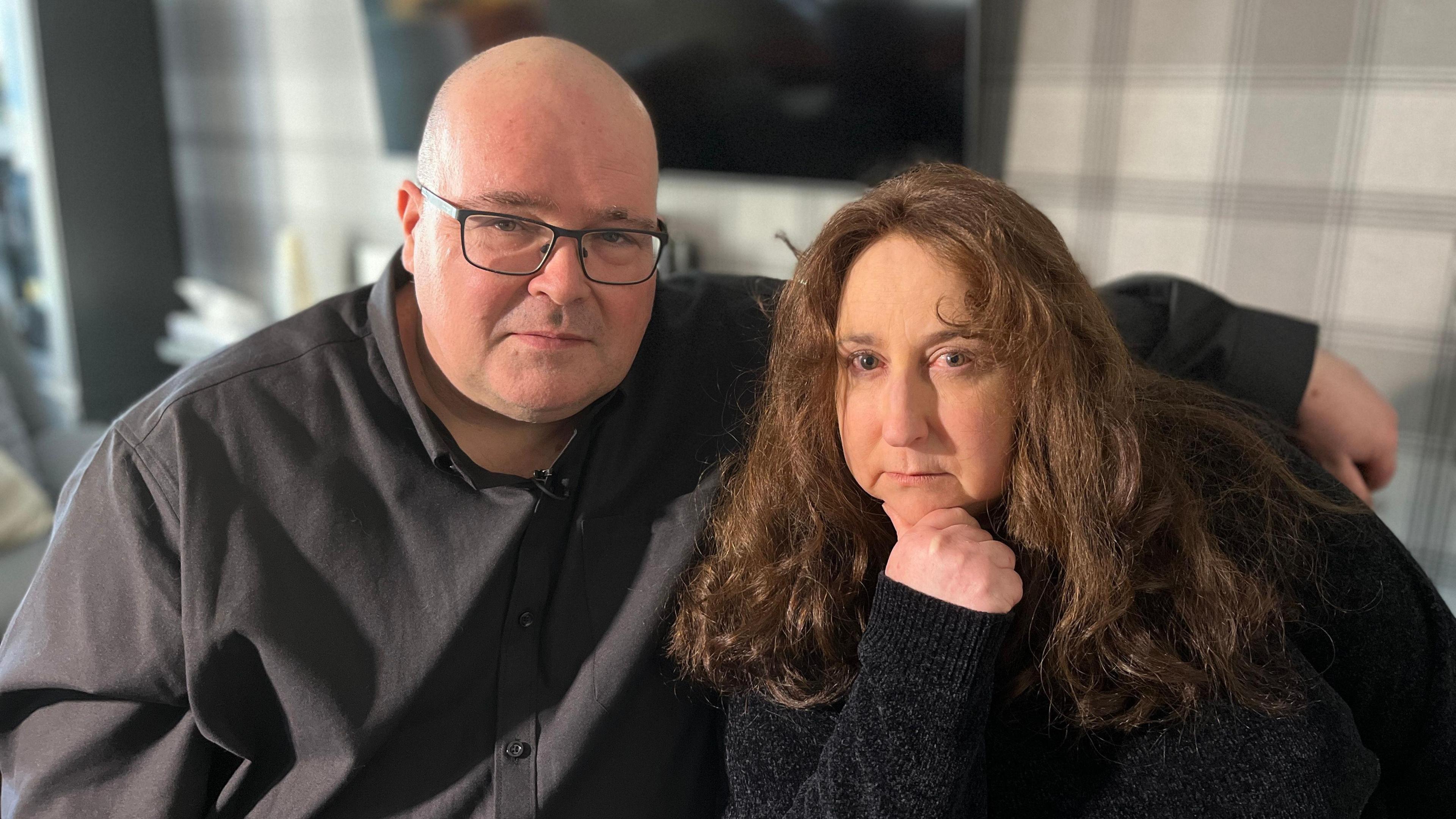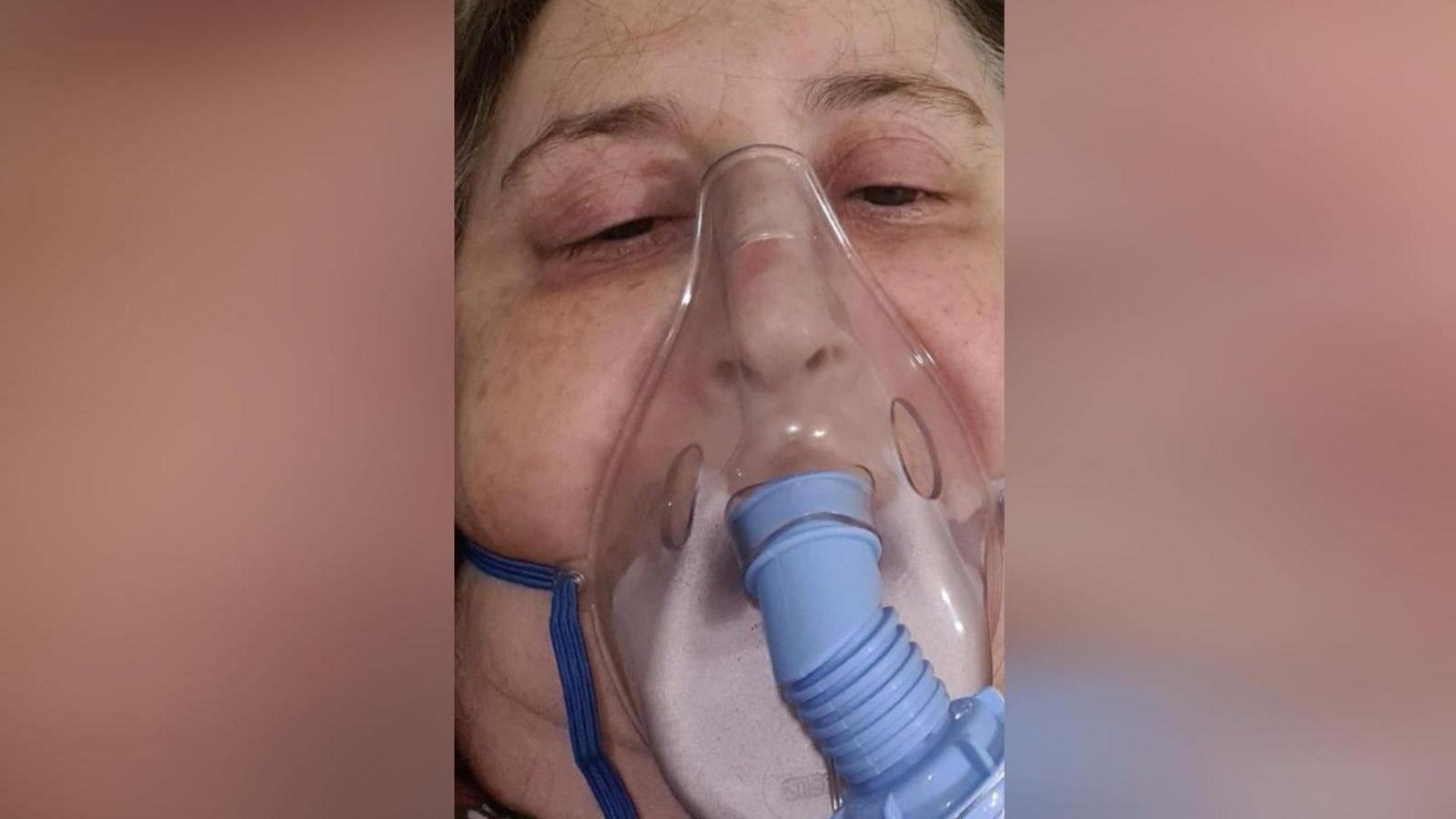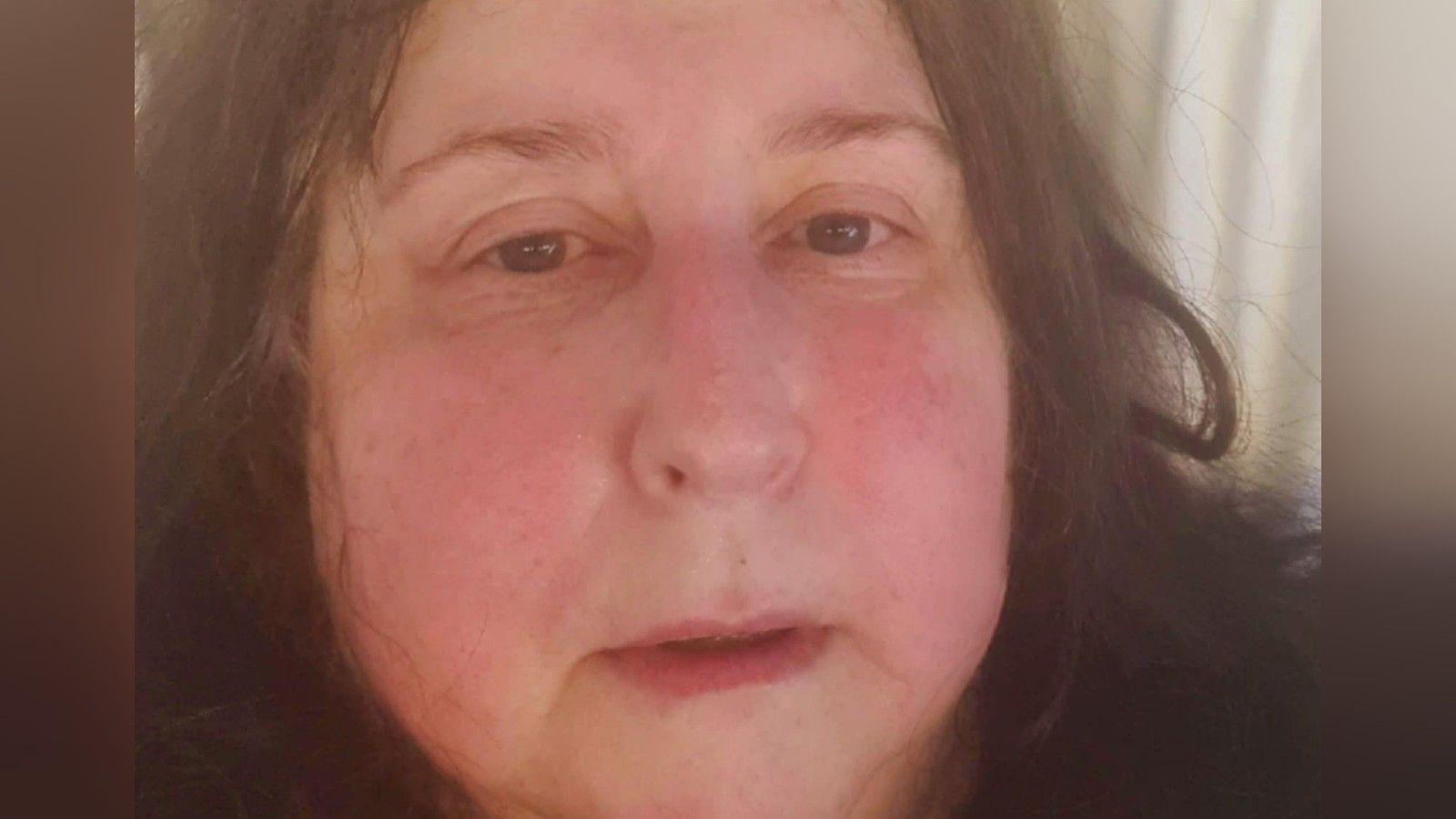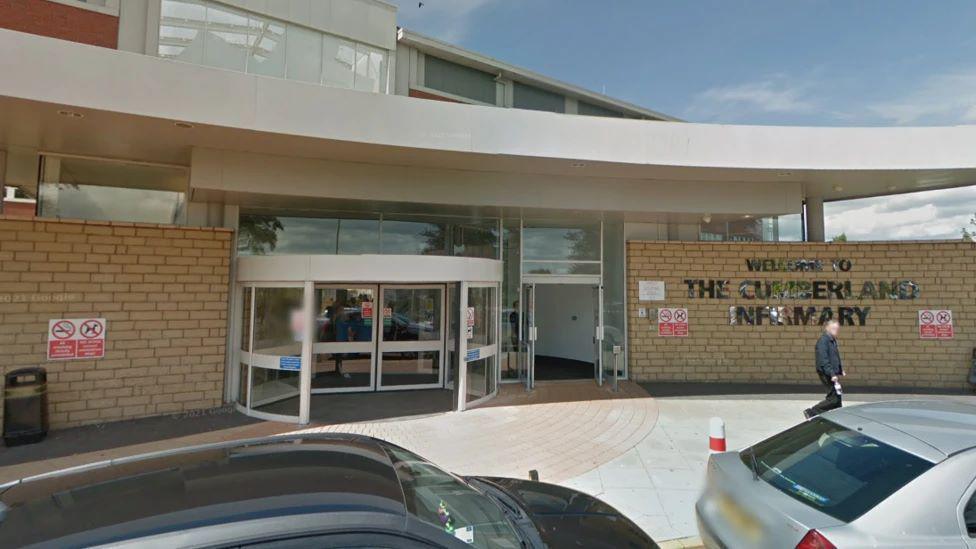Allergy sufferer 'traumatised' by hospital error

Kevin and Anita Robertson have been pushing for a changes to keep allergy sufferers safe when they visit hospital
- Published
A woman with a life-threatening mushroom allergy says she was left feeling traumatised after being fed a meal containing the food in hospital.
Despite making staff aware of her allergy, Anita Robertson was given the dish while a patient at the Cumberland Infirmary in Carlisle, Cumbria, triggering an anaphylactic shock.
During later hospital visits she claimed there were other near-misses and she has been campaigning for the hospital to improve how it deals with allergy sufferers.
Trading Standards has issued a caution to North Cumbria Integrated Care NHS Foundation Trust (NCIC). The trust said it had improved processes to keep patients with allergies safe.
Mrs Robertson's allergy is airborne, meaning being in a room where mushrooms are being served can trigger a reaction, and staff were made aware when she was admitted to hospital in October 2022.
As per hospital policy, the allergy was noted on the whiteboard above her bed and she was given a red wristband.
'I was choking'
Two days after being admitted to hospital, she was given a tomato and pepper pasta bake and when she asked if it contained mushrooms, she was told it did not.
Mrs Robertson said her mushroom allergy, which is not one of the 14 allergens regulated under food law, external, could kill her.
"It gets your breathing, it swells your throat, your tongue gets swollen - it feels like somebody's choking you."
She said she had not spotted the mushrooms at first, but when the itching started she saw one on her plate and "could not believe it".
"One bite and my lips started tingling," she recalled.

Mrs Robertson said the experience left her traumatised
When she called a nurse to tell her she was having an allergic reaction, the nurse told her there were no mushrooms in her meal - a statement included in her medical notes at the time.
Mrs Robertson was given antihistamines and steroids but she still struggled to breathe.
"I was choking and gasping, and then I think [the doctor] administered the adrenaline and then I don't really remember what happened after that, because they put defibrillator heart pads on my chest," she said.
The hospital later admitted the mistake and an updated incident report acknowledged she had been given a dish with mushrooms.
Two days after suffering the anaphylactic shock, Mrs Robertson said she was left in a "state of panic" when placed on a ward where patients were allowed to order food containing mushrooms.
When she complained to staff, she said privacy curtains were drawn around her and she was given face masks and told that would keep her safe.
Eventually she was moved to a different room, but she said inconsistencies with the menus being offered to her meant she did not feel staff knew which meals were safe.

Mrs Robertson spotted the mushroom after she felt her lips tingling
Two months later, she was back in hospital and as she was being moved on to a ward, she was placed on a corridor next to a food trolley containing mushroom soup.
She said: "I could see the steam coming out of the lid and I was saying 'please, please get me away from here', but I just wasn't taken seriously."
On the ward, she saw staff handing out menus containing mushroom stroganoff, and felt she had no other option but to discharge herself.
"I [thought] 'I can't do this, nothing's put in place'," she said. "I couldn't take that risk so I had to get out."
Despite living in Carlisle and frequently needing hospital attention due to conditions she suffers with, Mrs Robertson said she refused to go back to the Cumberland Infirmary and she felt traumatised by the experience.
"I'm petrified, I absolutely fear for my life just going there because I don't feel like anyone takes me seriously," she added.

Mrs Robertson said the allergic reaction caused her swelling and itching
Mrs Robertson's husband Kevin believes if he had not contacted the watchdog Care Quality Commission (CQC), the hospital would not have admitted to the mistake.
He said: "If she had died that day, I might have got a phone call telling me [she had died] and if it's based purely on the records written that day, I would have never known the truth, I'd be saying to my kids 'mum has gone, I don't know how it happened'."
The CQC said although it was not an investigatory body, it had contacted the trust to seek reassurance after the error and was satisfied with the actions taken.

Trading Standards has issued the trust with a caution
The couple also complained to Trading Standards, which is part of Cumberland Council and can either issue a caution or prosecute organisations if it finds sufficient evidence of wrongdoing.
By accepting a caution, NCIC formally accepted responsibility, which will be considered a relevant factor in case of any further incidents.
Trading Standards said the caution was issued after a "lengthy and detailed investigation".
A NCIC spokesman said although processes were in place to manage allergies at the time of Mrs Robertson's hospital stay, they "were not fully implemented" and the trust had apologised to her.
They added: "Following the incident we accepted a simple caution from Trading Standards, and have taken steps to improve our processes with a new standard operating procedure for dealing with food allergies.
"The CQC have confirmed they are happy with our approach."
Mushrooms are not part of the recognised list of 14 most common allergens, the trust said, and so catering and dietetics staff had to be informed to help the patient.

Natasha Ednan-Laperouse died after suffering an allergic reaction
The Natasha Allergy Research Foundation is a charity created in memory of Natasha Ednan-Laperouse, who died after suffering an allergic reaction to ingredients contained in a sandwich.
Her family's campaign resulted in the introduction of Natasha's law, which made it compulsory for food outlets to highlight the 14 major allergens.
Tanya Ednan-Laperouse, the charity's co-founder and Natasha's mother, acknowledged there were no protections for people with allergies beyond the recognised list.
"It is concerning because people are becoming allergic to more foods outside the 14 [allergens], we hear from many people through the charity that are allergic to any range of foods, sometimes as benign as rice and oats, to spices - all kinds of foods can trigger an allergic reaction," she said.
She added training was essential to keep allergy sufferers safe, especially in places like hospitals.
"If [patients] are already unwell and they're in hospital and they are served a food - unwittingly - but they are served a food that they are allergic to, that can put them in a life-threatening situation."
Follow BBC Cumbria on X, external, Facebook, external, Nextdoor and Instagram, external.
Get in touch
Do you have a story suggestion for BBC Cumbria?
Related topics
- Published19 March

- Published28 July 2023

- Published1 October 2021
